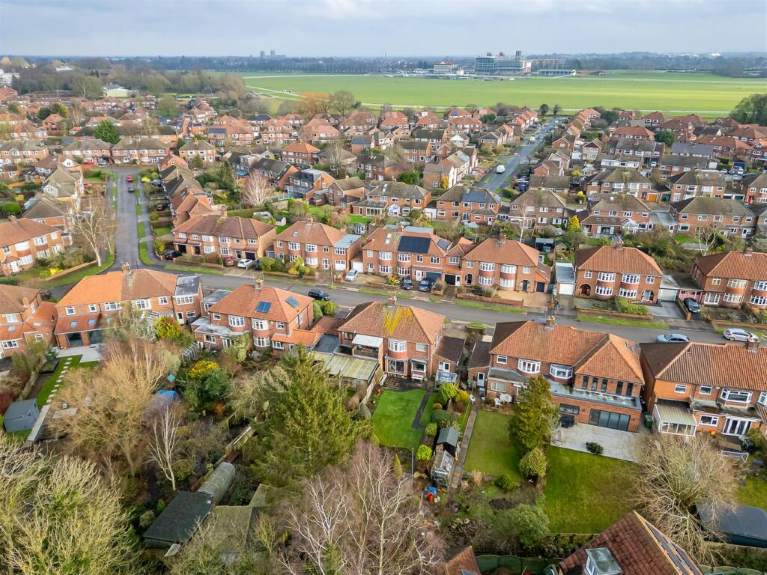Base Rate held at 3.75%: but what could it mean for mortgages?
Key summary:
- The Bank of England has held the Base Rate at 3.75% this month
- Average two-year fixed mortgage rates are approximately 4.25%*, and five-year fixed around 4.37%*, based on today’s mortgage rate data
- The market currently expects the next meetings in March and April to be further holds, with the possibility of another cut in June
The Bank of England has announced it will hold the Base Rate at 3.75% this month. This comes after a 0.25% reduction at the previous meeting, in December 2025.
The Bank’s focus is to strike the right balance between keeping inflation close to its target of 2%, and keeping the wider economy healthy.
Last month, it was announced that inflation had ticked up to 3.4%, up from 3.2% the previous month. This is far from the highs we saw inflation reach back in 2022, when it was in excess of 10%. But this figure will no doubt be contributing to the Bank’s cautious approach – along with other economic factors – around when to lower the Base Rate, and by how much.
What’s happened to mortgage rates recently?
After a period of 2-year fixed rate deals being the more expensive option by a considerable margin – around 0.5% higher when the gap was at its peak back in 2023 – 2-year rates are now cheaper overall, with the average 5-year fixed rate currently 0.12% higher.
The average 5-year fixed rate is down from 6.08% in July 2023, to 4.37% this week, and the average 2-year fixed rate is down from 6.61%, to 4.25%. You can check the current average mortgage rates for different terms and deposit sizes here, which we update throughout the week.
What do the experts think?
Our mortgage expert, Matt Smith, says: “Today’s Bank Rate hold was widely expected given underlying inflation and wage growth data, and it’s currently likely we’ll see the next Bank Rate cut in June.”
He adds: “Average mortgage rates have remained pretty steady over the last couple of weeks despite the underlying cost of funding mortgages becoming more expensive to lenders. This is why some lenders have increased rates slightly over the last few days, but we’re seeing lenders try to remain as competitive as they can at a busy home-moving time of year. We’re still seeing some of the cheapest rates around since before the mini-Budget. We’re seeing an encouraging start to the year for home-moving activity, with many home-buyers taking advantage of lower mortgage rates and stable house prices to make their move.”
What does the Base Rate hold mean for my current mortgage?
Changes to the Bank’s Base Rate can impact how much interest you’ll pay on loans, including mortgages. If you’re on a fixed-rate deal, your monthly payments won’t change until the end of your deal. And if you’re on a variable or tracker mortgage, this month’s Base Rate hold will mean your monthly payments remain the same.
If you’re coming to the end of your fixed-rate mortgage soon, you’ve probably already started to think about the rate you’ll be offered on your next deal. Our remortgage calculator will show you new estimated monthly repayments from your current lender, and the 10 largest UK lenders. You can also check the current average remortgage rates here.
A good way to find out how much you could borrow is to use a mortgage calculator. And to get a personalised result by applying for a Mortgage in Principle which will take you one step closer to a mortgage offer.
In July 2023, the Mortgage Charter was launched to help those struggling to meet their monthly payments, as well as borrowers who are coming to an end of their fixed rates soon.
The Mortgage Charter encourages lenders to be flexible and offer borrowers the chance to lock in a new deal up to six months before their current rate ends. Of course, borrowers can also look at moving to another lender – commonly known as remortgaging – but this can take longer, as you have to go through a normal lending process, such as income checks, the legal process, and maybe a valuation of your home.
This all takes time, and you would want to make sure you’re looking around a few months before the end of your current deal to avoid falling onto your lender’s Standard Variable Rate – which will cost more than the repayments you’d have made on a fixed rate mortgage. The current average for SVRs is 6.91%.
When could interest rates fall?
The Bank of England’s Monetary Policy Committee meets every six weeks to discuss and vote on whether interest rates should go up or down, or stay the same.
And whatever the markets are predicting right now, this could all change depending on what happens in the broader economic environment.
The next decision on interest rates will be announced at 12pm on Thursday 19 March 2026.
*Average mortgage rate data provided by Podium.
Please note: Your home may be repossessed if you do not keep up repayments on the mortgage. Rightmove is not authorised to give financial advice; the information and opinions provided in these articles are not intended to be financial advice and should not be relied upon when making financial decisions. Please seek advice from a regulated mortgage adviser.



